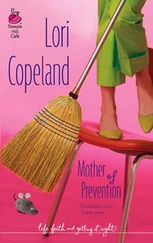Returning to her dusting, Beulah fretted. “Dr. Fuller will tell Papa if he finds out I gave her Lydia Pinkham’s compound.
“He won’t know it’s Lydia’s compound.”
“Dr. Fuller caters to Mrs. Faith, you know. Tells her she’s beautiful. She laps it up—but then, most of the unmarried women in town and half the married women suddenly have a ‘problem’ now. Have you noticed?”
“That he’s single?”
“That he’s handsome, silly.”
“I’ve noticed.” April brushed an imaginary speck of dust off the counter.
“Now, there’s a man I’d like to kidnap.”
“Well, he is nice-looking, but he isn’t my type.”
“Meaning he doesn’t agree with your opinion of Mrs. Pinkham’s compound?”
“You should have seen him at the rally the other day. I don’t know why he was there. Standing there in the midst of all those women, arms crossed, looking as if he couldn’t believe what he was hearing. Spoke right up about how females should trust doctors. Nearly started a riot. He saw me, and if looks could kill, I’d be lying in Grandpa’s front parlor right now.”
“Golly.” Beulah’s eyes widened. “Does he know who you are?”
“No. He visits on the porch with Grandpa occasionally, but it’s dark and I keep well-hidden. He hasn’t seen me, I’m almost certain, or he would have told Grandpa about the compound. He’s a snitch.”
“How do you know?”
April shrugged. “He’s too good-looking to be honorable.”
“Well, if the compound’s everything Mrs. Pinkham claims it is, the good doctor would be out of business in a week.”
April snorted. “I don’t think he’s threatened either by the compound or by me.”
Beulah paused, her dust cloth suspended in midair. “You didn’t make a scene.”
“No…well, sort of. I fell over my table of elixir.”
“Accidentally?”
“No, on purpose. The crowd was out of control, coming at me. I backed up, fell over the table, cracked my head, then pretended to be unconscious.”
“And it worked?”
She blushed, recalling how Gray Fuller had seen right through her little ruse. Undoubtedly he had had a good laugh at her expense.
“You should have seen me. It was humiliating. The table collapsed, making a horrendous scene. I would’ve been smarter to let the crowd trample me.”
Beulah laughed. “And Dr. Fuller saw you?”
“Saw me? He rushed over to help. Naturally, I pretended to faint, but he knew what I was doing.”
Her friend’s hand flew to her mouth. “He knew?”
“Without a doubt, but he went along with me. Actually, he was rather charming about the whole thing.”
April knew his kind. All charm, certain his diploma gave him all kinds of rights—including meddling, if he could.
“I don’t know, April. Eventually he’ll know who you are. Maybe you should go to him and explain about your grandpa’s heart, and why you don’t want him to know you’re working with Lydia.”
“No. It’s none of Dr. Fuller’s business.”
“After your mother’s unfortunate death, your grandpa might understand why you’re working to help save other women from the same fate,” Beulah mused.
“Grandpa refuses to talk about Mama.”
The loss of his only daughter during a routine hysterectomy seven years earlier had traumatized him. Riley had never fully recovered. When Delane’s name was mentioned, he refused to discuss her.
“Any man who takes in a fourteen-year-old girl to raise—a pigheaded fourteen-year-old, I might add—can’t be as close-minded as you paint him to be.”
Sighing, April went to look out the pharmacy window. “I saw Mama die. And she didn’t need to. If that doctor had known more, if he’d had something like Lydia’s vegetable compound to at least try before surgery, my mother might still be alive. That’s why I do what I do—not to torment Grandpa, but in the hope that someone else won’t lose their mother or daughter to needless medical procedures.”
“Then why wouldn’t your grandpa encourage you to sell a product intended to help women?”
“He thinks the compound is nonsense, and it wouldn’t help anyone.”
“He told you this?”
“He doesn’t have to. I’ve heard him talking. He thinks women are silly for taking it.”
“Still, I think you should tell Riley what you’re doing.”
“You’re entitled to your opinion. Just make sure you don’t let it slip when Grandpa comes in to buy sundries.”
“Don’t worry about me,” Beulah told her as April opened the door to leave.
“And you don’t have to worry about me.”
That was the nice thing about best friends; they didn’t have to worry about each other.
Datha Gower had kept house for Riley Ogden for over five years. Since she was eleven years old she’d polished floors, hung wash, cooked and cleaned.
Ogden’s Mortuary was a towering, two-story landmark with a large, wraparound front porch that caught the sun in the morning, and a roomy back porch that offered a cool breeze in the afternoon.
It took a powerful lot of work to keep it all clean.
A screened-in porch on the north side of the house allowed Mr. Ogden privacy after a long, trying day. He was known to sit for hours, drawing on his meerschaum pipe while watching the foot traffic that passed in front of the mortuary, knowing that one day, like as not, he’d be burying every last passerby. Why, he could guess within an inch how tall anyone was and what size coffin it’d take to put them away.
Riley lived with his granddaughter in six big rooms above the main parlor. The place had been tastefully decorated by Riley’s deceased wife, Effie, who had favored overstuffed chairs, cherrywood and a passel of worrisome trinkets that needed dusting.
Wisteria vines trailed the length of the white porch railings shaded by large, overhanging elm trees. Datha and Flora Lee, her grandmother, lived in servants’ quarters behind the main house. Flora Lee had been with the Ogden family all her life. Flora Lee’s daddy, Solomon Tobias Gower, had served the Ogden family during the Civil War, refusing to leave them when the Emancipation Proclamation was effected. The Gowers thought themselves lucky to serve such a fine, upstanding family.
When Flora Lee had gotten too crippled to do much around the house, Datha took over. She’d lived with Flora Lee since her mama died in childbirth. On good days Flora Lee still came to the main house to help clean, but most days her rheumatism kept her home. Comfortably lodged in nice quarters, the two served the Ogden family with humble gratitude and tireless loyalty, counting their blessings that April and Riley were kind, caring people who were more family than employers.
In Flora Lee’s youth, long before the dead were taken to funeral homes for eulogies, long before the Ogdens had turned their private home into a mortuary, Flora Lee had helped Owen Ogden, Riley’s papa, to prepare friends and neighbors for burial.
Datha loved to hear stories about how her grandma had cried along with distraught wives and inconsolable mothers as they bathed and dressed their loved ones, then laid them out in the front parlor. Folks would come from miles around to view the body, offering words of comfort. Flora Lee liked to tell how she’d curl up in a corner, pulling her legs up beneath her, out of the way, but there to serve if anyone needed her.
Friends, in an effort to share the grief, brought overflowing baskets of food, arriving throughout the day to mourn the deceased. The yard would fill with buggies and neighbors standing outside visiting as the deceased lay within.
Datha hummed now as she dusted the mortuary entryway, remembering Flora Lee’s stories.
Читать дальше












